
As a group, vultures are the most threatened birds in the world – many populations are under pressure and some species are facing the very real risk of extinction. Adding this to their ecologically important role increases the importance of conserving them. The International Vulture Programme (IVP) is a multi-partner initiative that focuses efforts on the research and conservation of vultures. The IVP is made up of a series of projects in southern Africa and south Asia and, as has been the case since the beginning of the IVP, these are to a large extent supported by IVP Funding Partners.
The IVP focuses efforts on the research and conservation of the following eight vulture species:
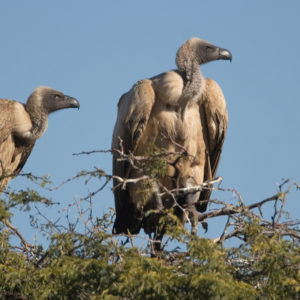
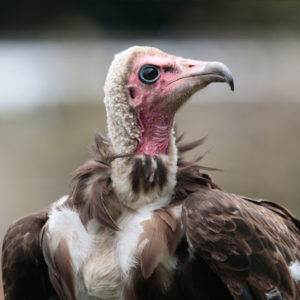
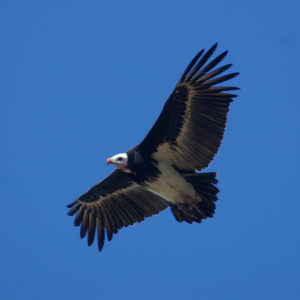
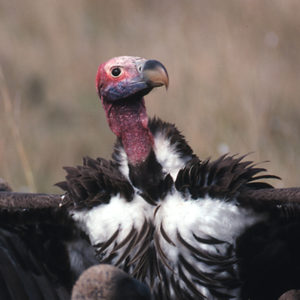
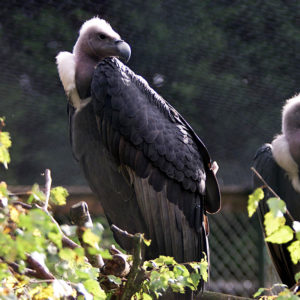
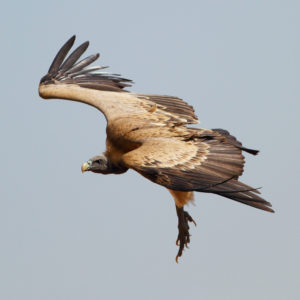
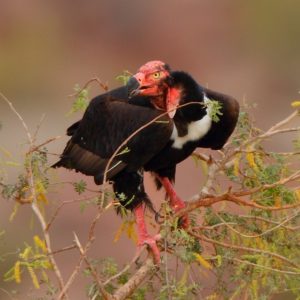
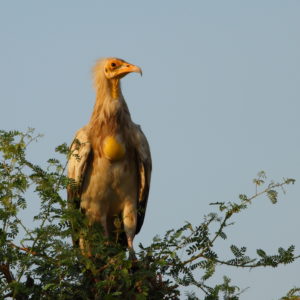
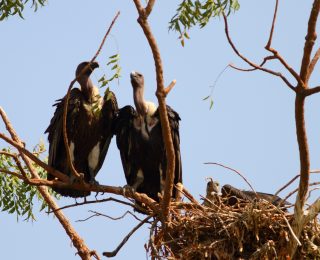
Project aims: To preserve and improve the conservation status of three Critically Endangered vultures in Pakistan and to develop a post-diclofenac field programme for potential reintroductions.
The Pakistan Vulture Restoration Project (PVRP) is a joint initiative between the Hawk Conservancy Trust and WWF-Pakistan. It started in 2005 and is based at a conservation breeding centre about 50 miles southwest of Lahore, in the Punjab Province of Pakistan. The breeding centre holds a secure colony of Asian White-backed Vultures. A second project site is located in Sindh Province, southeast Pakistan, and protects two important breeding colonies – White-backed Vultures and Long-billed Vultures – in what is termed a ‘Vulture Safe Zone’. Work in the safe zone is aimed at improving local livelihoods as well as protecting vultures.
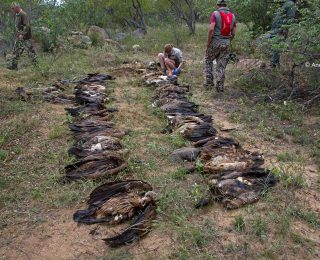
Poisoning is the biggest threat facing vulture populations in Africa, and it has increased rapidly with the ongoing slaughter of elephants for the illegal ivory trade. Poisoning associated with ivory poaching now accounts for one third of all vulture poisonings since 1970 and is currently the biggest cause of vulture mortality.
In the firefight to avoid another continental vulture crisis, and the very real threat of extinction, we are equipping rangers with Poison Response Kits. These kits contain a range of equipment and first aid materials and are designed to reduce the impacts of poisoned carcasses on wildlife. Often, poisons are so toxic that vultures can die with food still in their mouths. This means that work must take place as soon as possible to prevent further deaths. With a quick response and the effective use of Poison Response Kits, hundreds of vultures and other wildlife can be saved from death by poisoning.
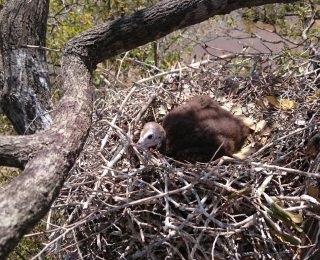
Project aims: To determine nest site and breeding biology characteristics of Hooded Vultures and also understand the importance of river characteristics and river dynamics for this species.
The Hooded Vulture has experienced major declines across Africa and is listed as Critically Endangered. In South Africa, Kruger National Park holds the most important population of this species and this project is investigating the ecology and population dynamics of Hooded Vultures in Kruger as well as Mapungubwe National Park. The project is characterising breeding sites, the landscapes where they occur and the inter-specific matrix surrounding them. It will also assess how the Hooded Vulture integrates with system processes, in particular the riparian corridors and river/savanna boundaries where this species nests. This project is run in partnership with the Birds of Prey Programme of South Africa’s Endangered Wildlife Trust, University of KwaZulu-Natal and Hawk Mountain Sanctuary.
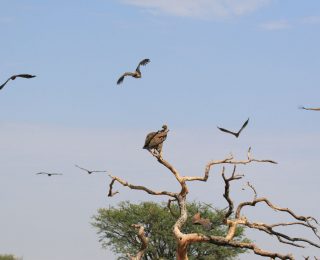
Project aims: To research the biology and ecology of four tree-nesting vulture species; develop and implement conservation outcomes for these species in southern Africa.
The Savanna Vulture Project is a multi-faceted and multi-partner project that is focused on conserving populations of tree-nesting vultures in southern Africa, which are all endangered or critically endangered and all declining rapidly. The research activities are focused on investigating key ecological features such as breeding biology and the factors affecting nest tree availability. Conservation action is focused closely on reducing mortalities from poisons via the provision of poison response kits and supporting training of field personnel. The main project partners are the Birds of Prey Programme of South Africa’s Endangered Wildlife Trust and South Africa National Parks.
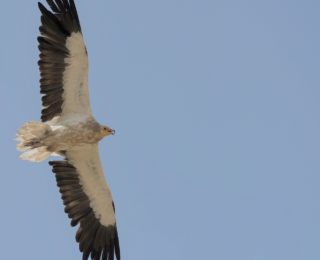
Project aims: To understand migration movements of Egyptian Vultures in central Asia, so we can understand the threats they face and how to effectively implement conservation actions for this Endangered species.
This exciting project is tracking Egyptian Vulture movements in central Asia for the first time ever and we are delighted to be involved. This invaluable research will help us to understand more about this Endangered species and how we can ensure its survival in central Asia. Field work takes place in Uzbekistan, which is at the crossroads of two major migration flyways used by many bird species, so research on migration routes and the major threats along those routes is beneficial for a number of birds of prey and other species using the flyways.
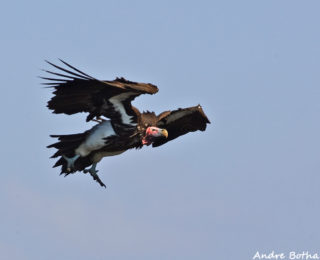
Project aims: To investigate the cause of nest tree loss for Lappet-faced Vultures and any role that elephants play in this, implement mitigation methods to protect remaining nesting sites.
This project is looking at ways to protect nest trees for the Endangered Lappet-faced Vulture. Elephants regularly browse, damage or push over the favourite nesting trees of these vultures, leading to large breeding territories becoming unavailable. The project will identify potential methods to help protect these vital nest sites with fieldwork taking place in Kruger National Park, South Africa, where the number of Lappet-faced Vulture nests has declined by 35% in recent years. This decline in nests is likely to be continuing in Kruger and elsewhere, with Lappet-faced Vultures potentially soon being categorised as Critically Endangered.